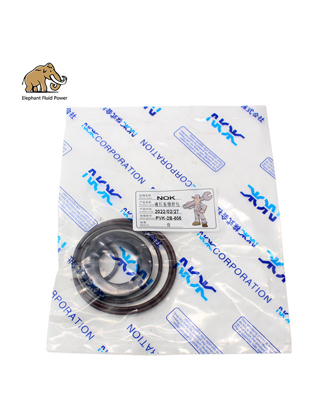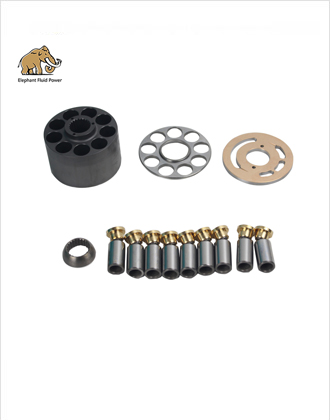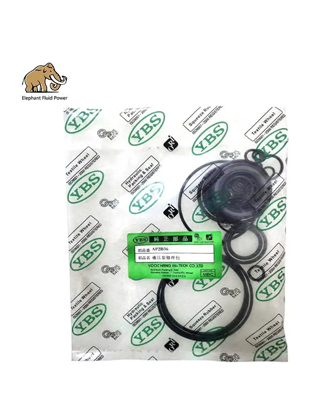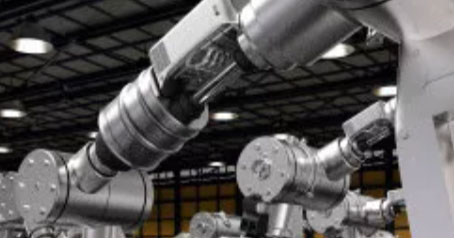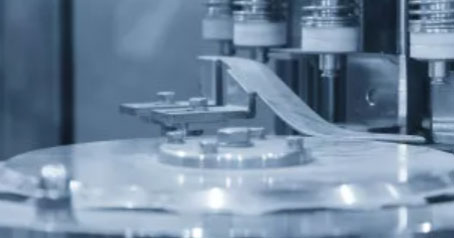Hydram pump is a hydraulic component that provides pressurized liquid for hydraulic transmission and is a type of pump. There are two types of power losses when the hydram pump works, one is the volumetric loss and the other is the mechanical loss.
The reason for the mechanical loss caused by the hydram pump
During operation, there is mechanical friction between the various relatively moving parts, such as between the bearings and the shaft, between the shaft and the sealing components, and between the blades and the inner wall of the pump body, resulting in frictional resistance loss. This loss is related to the output pressure of the hydram pump. The higher the output pressure, the greater the friction resistance loss.
When the oil flows in the pump, the viscous resistance caused by the viscosity of the liquid will also cause mechanical loss. This loss is related to the viscosity of the oil and the speed of the hydram pump. The higher the viscosity of the oil and the speed of the pump, the greater the mechanical loss.
Due to the above reasons, the actual input power of the hydram pump is greater than the theoretically required power. The ratio of the theoretical input power to the actual input power of the hydram pump is called mechanical efficiency, which indicates the degree of power loss. The ratio of output power to input power of the hydram pump is called total efficiency.
The reasons for the volumetric loss caused by the hydram pump
Although the suction and discharge chambers of a volumetric hydram pump are separated in the pump, there is always a certain gap between the relative movements. Therefore, the oil in the high-pressure area of the pump must inevitably leak into the low-pressure area through the gap. The lower the viscosity of the hydraulic oil and the higher the pressure, the greater the leakage.
During the suction process of the hydram pump, the phenomenon of pumping air will occur due to factors such as excessive suction resistance of the oil, too viscous oil or too high speed of the pump shaft. As a result, the working volume of the sealed cavity cannot be fully filled with oil, which means that the working chamber of the hydram pump is not fully utilized.
Due to the above reasons, the hydram pump has volumetric loss. However, as long as the pump is designed correctly and used reasonably, the second reason for loss can be overcome, that is, the volumetric loss of the pump can be reduced.
However, the volumetric loss caused by leakage when the hydram pump works is inevitable. In other words, the volumetric loss of the hydram pump can be approximately regarded as being entirely caused by leakage, which makes the actual flow rate of the hydram pump smaller than the theoretical flow rate. The ratio of actual flow rate to theoretical flow rate is called volumetric efficiency, which indicates the degree of volumetric loss of the hydram pump.
 French
French
 Portuguese
Portuguese
 Russian
Russian
 German
German
 Spanish
Spanish
 Japanese
Japanese
 Korean
Korean
 Irish
Irish
 Greek
Greek
 Turkish
Turkish
 Italian
Italian
 Danish
Danish
 Romanian
Romanian
 Indonesian
Indonesian
 Czech
Czech
 Afrikaans
Afrikaans
 Swedish
Swedish
 Polish
Polish
 Basque
Basque
 Catalan
Catalan
 Esperanto
Esperanto
 Hindi
Hindi
 Lao
Lao
 Albanian
Albanian
 Amharic
Amharic
 Armenian
Armenian
 Azerbaijani
Azerbaijani
 Belarusian
Belarusian
 Bengali
Bengali
 Bosnian
Bosnian
 Bulgarian
Bulgarian
 Cebuano
Cebuano
 Chichewa
Chichewa
 Corsican
Corsican
 Croatian
Croatian
 Dutch
Dutch
 Estonian
Estonian
 Filipino
Filipino
 Finnish
Finnish
 Frisian
Frisian
 Galician
Galician
 Georgian
Georgian
 Gujarati
Gujarati
 Haitian
Haitian
 Hausa
Hausa
 Hawaiian
Hawaiian
 Hebrew
Hebrew
 Hmong
Hmong
 Hungarian
Hungarian
 Icelandic
Icelandic
 Igbo
Igbo
 Javanese
Javanese
 Kannada
Kannada
 Kazakh
Kazakh
 Khmer
Khmer
 Kurdish
Kurdish
 Kyrgyz
Kyrgyz
 Latin
Latin
 Latvian
Latvian
 Lithuanian
Lithuanian
 Luxembourg
Luxembourg
 Macedoniar
Macedoniar
 Malagasy
Malagasy
 Malay
Malay
 Malayalam
Malayalam
 Maltese
Maltese
 Maori
Maori
 Marathi
Marathi
 Mongolian
Mongolian
 Burmese
Burmese
 Nepali
Nepali
 Norwegian
Norwegian
 Pashto
Pashto
 Persian
Persian
 Punjabi
Punjabi
 Serbian
Serbian
 Sesotho
Sesotho
 Sinhala
Sinhala
 Slovak
Slovak
 Slovenian
Slovenian
 Somali
Somali
 Samoan
Samoan
 Scots Gaelic
Scots Gaelic
 Shona
Shona
 Sindhi
Sindhi
 Sundanese
Sundanese
 Swahili
Swahili
 Tajik
Tajik
 Tamil
Tamil
 Telugu
Telugu
 Thai
Thai
 Ukrainian
Ukrainian
 Urdu
Urdu
 Uzbek
Uzbek
 Vietnamese
Vietnamese
 Welsh
Welsh
 Xhosa
Xhosa
 Yiddish
Yiddish
 Yoruba
Yoruba
 Zulu
Zulu

